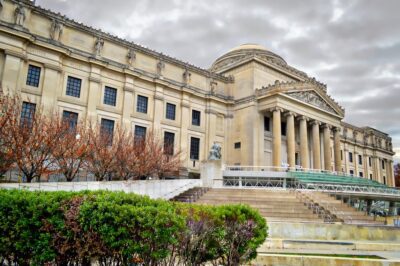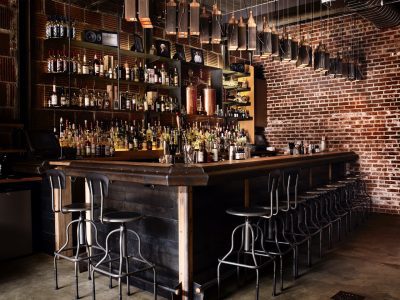All photos by Clay Williams
Opinion: One neighbor’s account of the Sunset Park Easter standoff
Photographer Clay Williams has been documenting peaceful gatherings in Sunset Park for years, but on Easter Sunday things took a turn
Any neighbors expecting a quiet walk through Sunset Park this past Sunday morning were in for a surprise. The park, which serves as the vibrant hub for the community, as I documented for Brooklyn Magazine last year, became the scene of a tense standoff for several hours on Easter morning.
Starting early in the day, patrol cars from the Department of Parks and Recreation were lined up in the southeastern path to Seventh Avenue, while a parks department truck and at least a dozen New York Police Department officers were stationed at the exit onto Sixth Avenue. All together, no less than 30 city officers and employees stood firm to represent law and order.
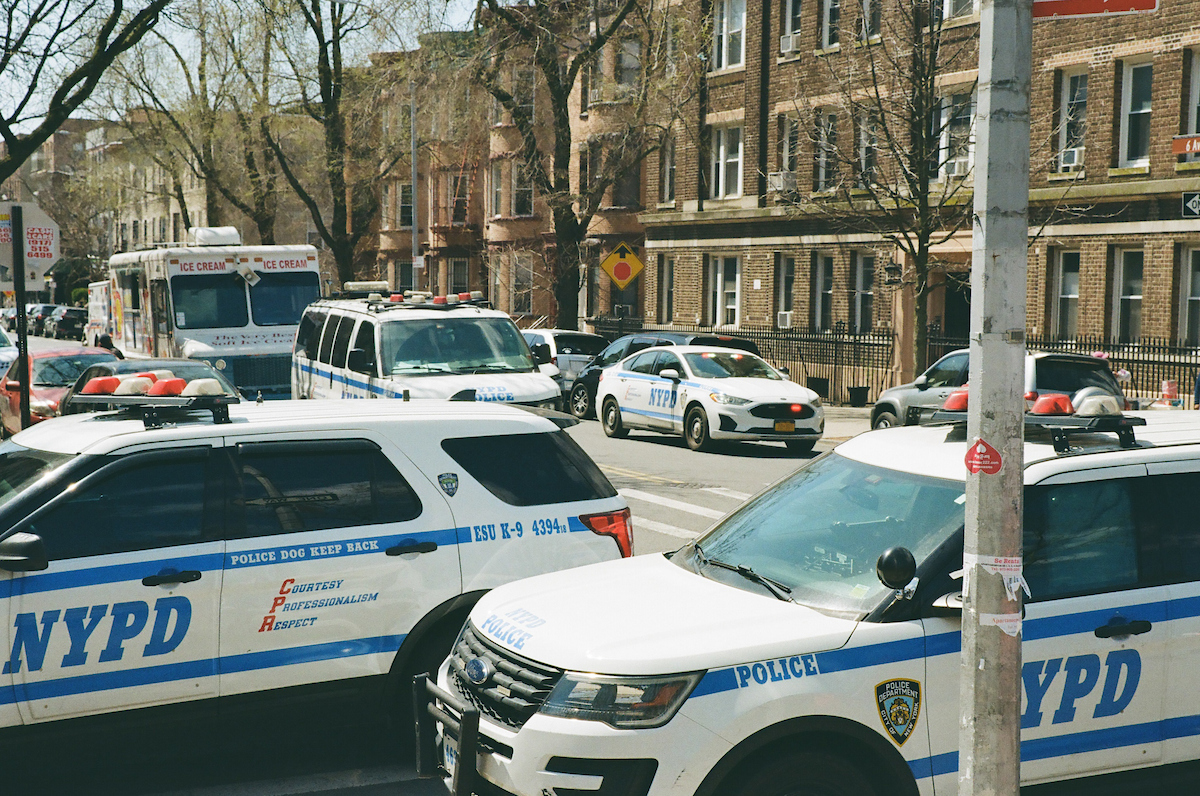
Photo by Clay Williams
On the other side, the threat to the peace: a Puerto Rican drum circle, a traditional Mexican religious ceremony, neighbors sharing food, and young people making jewelry and hosting reading groups. A handful of those gathered held up signs and banners, which apparently made the entire affair a “protest” in the eyes of officials, who demanded a permit and, lacking that, expulsion.
Or maybe it was the food? At one point, a wall of green uniformed Parks department officers approached an area where friends of the festivities were handing out free home-cooked food to anyone hungry. Now, if that food was sold, it would be a crime, and have to be confiscated and discarded. To keep the order, of course.
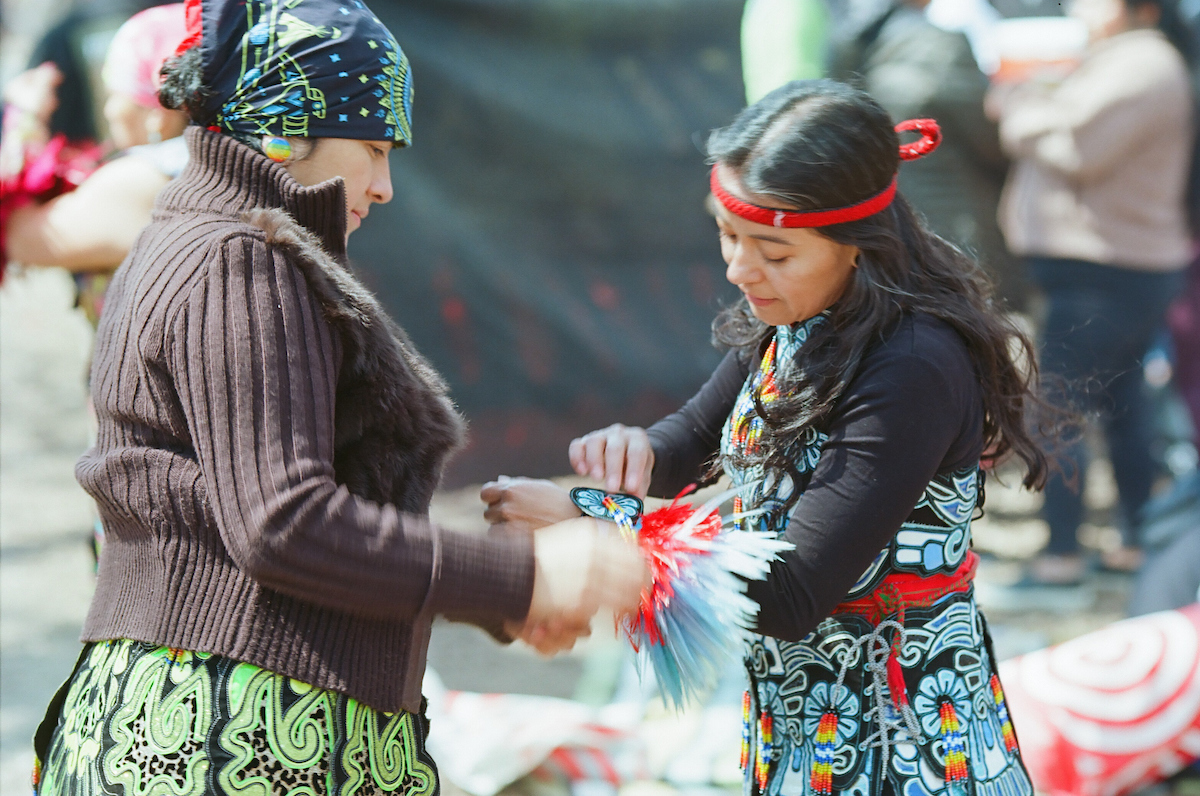

Photo by Clay Williams
Ostensibly the show of force was necessary to prevent these agents of chaos from setting up an un-permitted market, where local participants cooked and sold food to neighbors as they had on Sundays from spring to fall over the previous two years.
The market and the surrounding cultural, educational, and political gathering called Plaza Tonatiuh, began as a way to empower the community and help neighbors make ends meet in the heart of the pandemic. It continued on as a celebration of culture and togetherness.
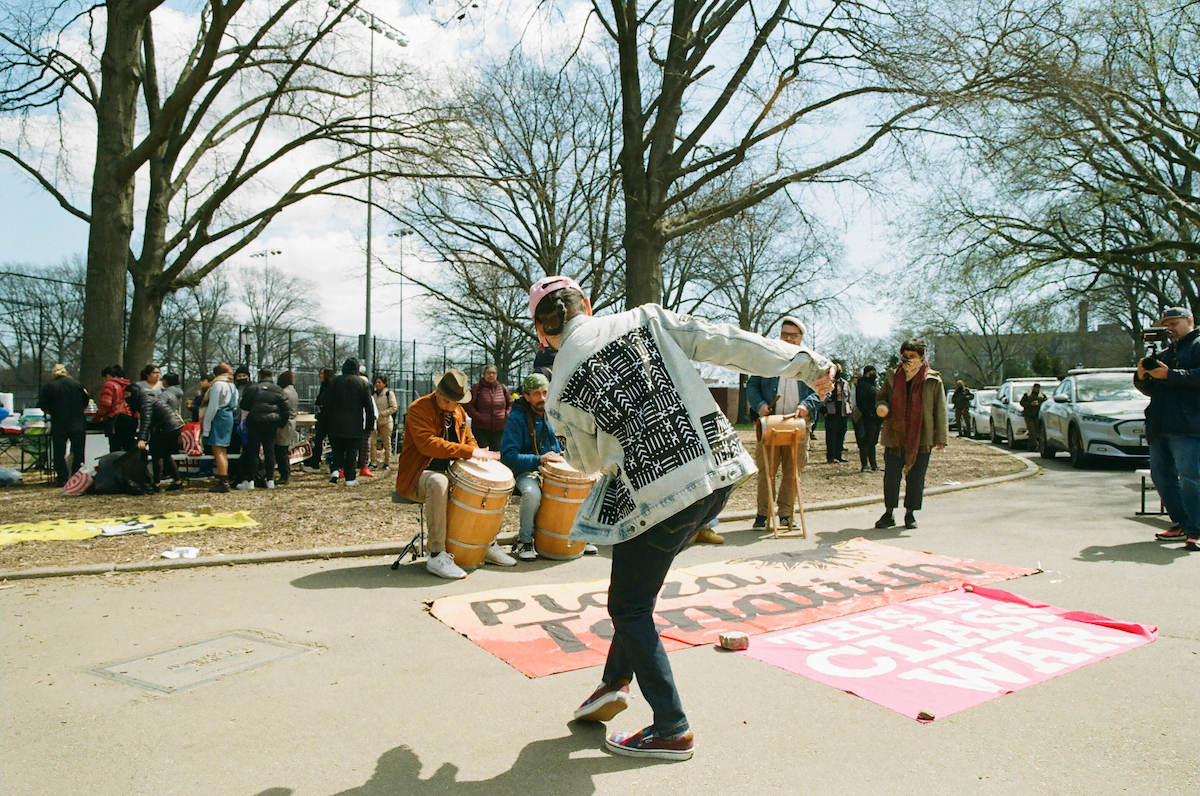

Photo by Clay Williams
As I noted last year, the market stands apart from the Smorgasburgs and street festivals seen elsewhere in the city because it was built by and for the people of the neighborhood, not as a destination for potential gentrifiers or as an incubator for future restaurateurs to build their brands. It’s about keeping the money circulating within the community and supporting the culinary and creative work of our neighbors.
This year, the city has decided that such unsanctioned camaraderie must not go on. At least not unless they start kicking in a whole lot of money in license and permit fees to the city. And to show how much that money is needed, the city paid dozens of workers to stand around and make clear that the park is not the place for people to come together.
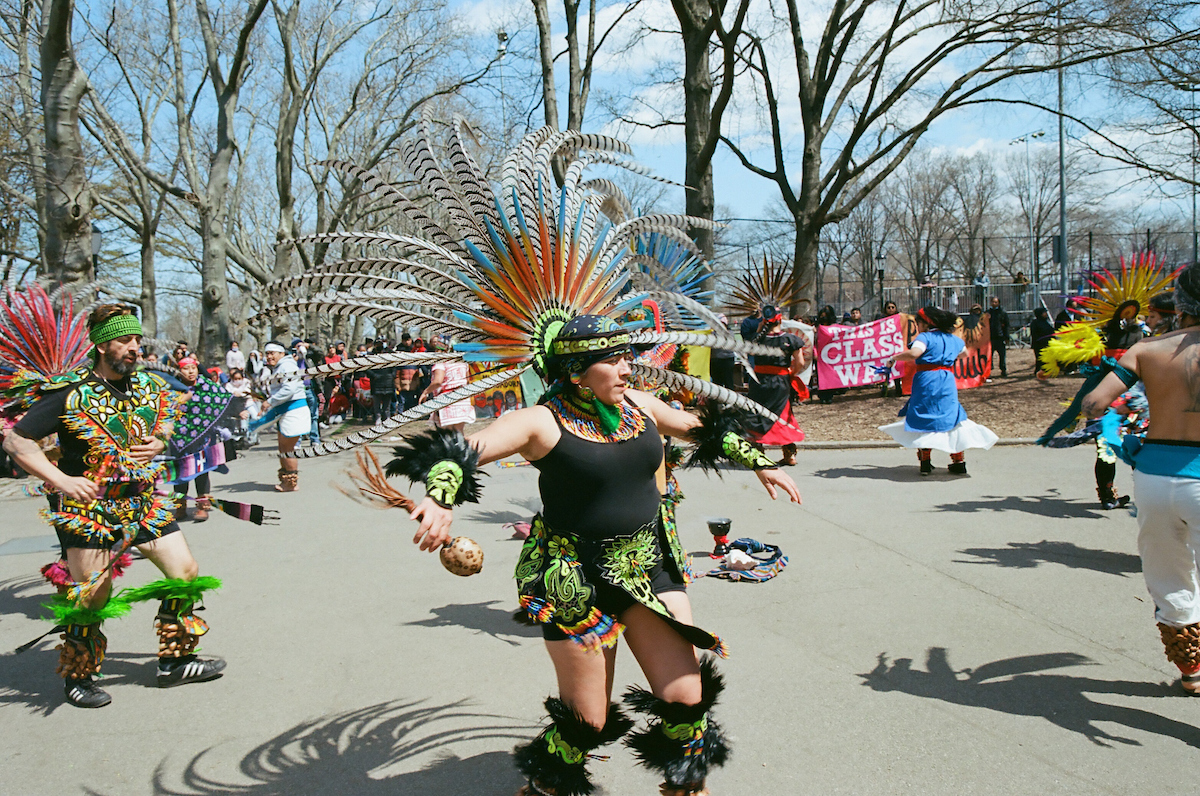

Photo by Clay Williams
Having witnessed the events of the day, the preceding snark is the closest form of “balance” I can bring to an absurd situation. The response by the authorities blows past tone deaf and heads straight for obscene.
“We are aware of recent enforcement activity at Sunset Park and are disheartened that we are at this place,” Councilmember Alexa Avilés, who represents the district, said in a statement on Sunday. “We have been talking with various stakeholders, and we all want to find a solution to support the vendors.”
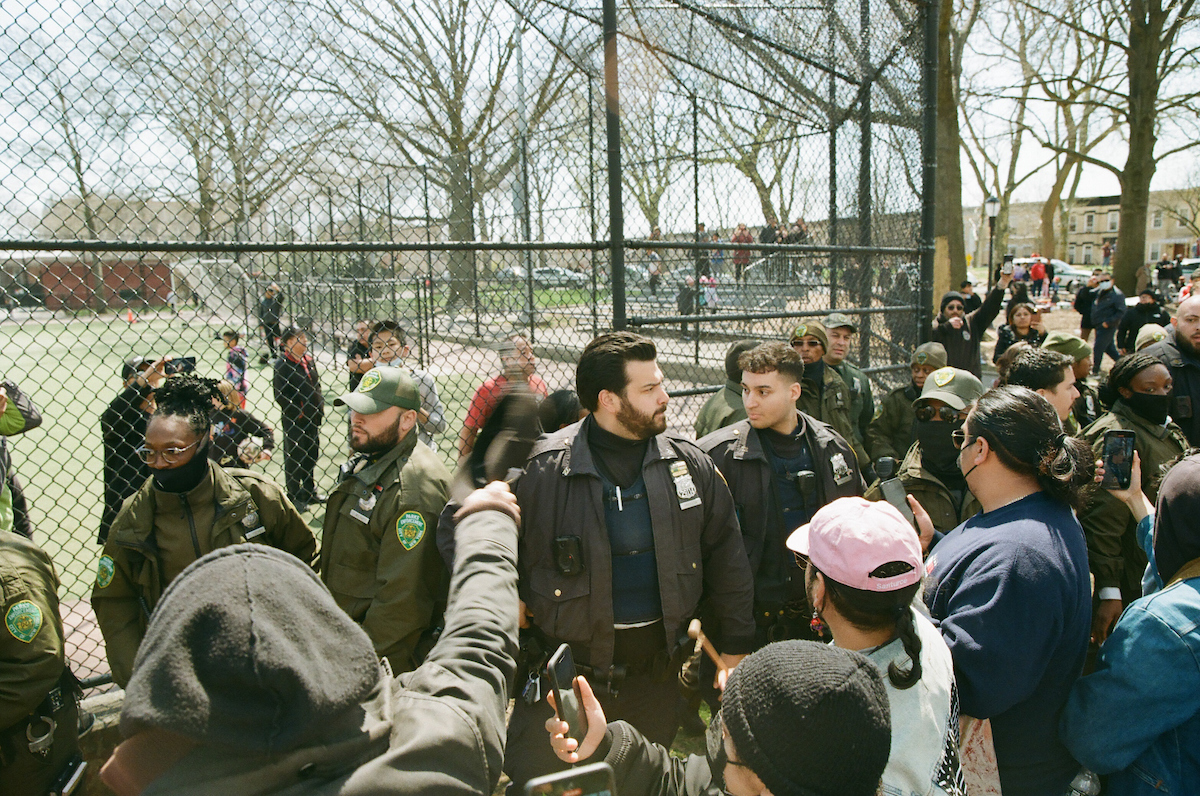

Permits and licenses are meant to keep people safe, fees are needed to support infrastructure and keep our streets and parks clean. Rules about where and how fire can be used to prepare food are necessary to prevent catastrophe. But the few public spaces we are afforded in this crowded city are ours to assemble in, to gather and share culture, activities, and yes, food. Our leaders and civil servants should be doing everything they can to find a solution that allows homegrown gatherings like the Plaza continue to support and empower their communities.
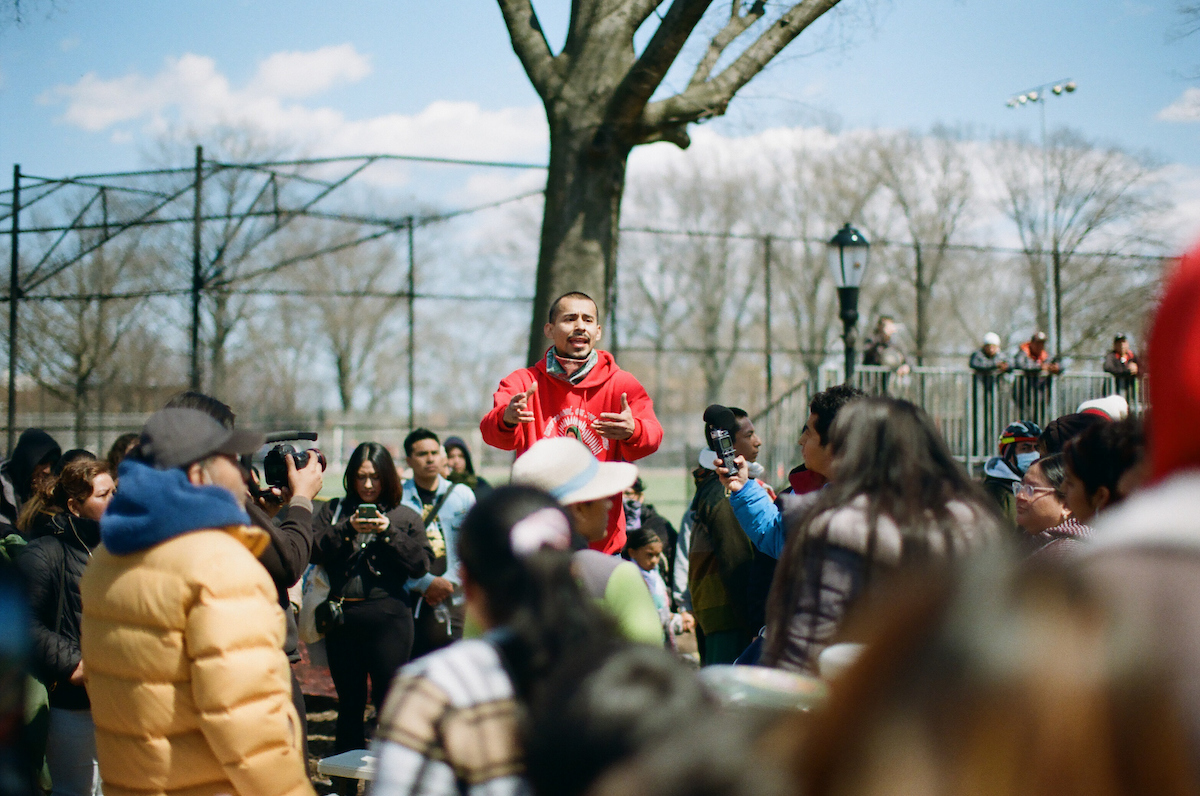

Photo by Clay Williams
As things stand now, there’s no question that next Sunday, and likely Sundays to come in Sunset Park will see more of the same, with the organizers of the Plaza taking space in lawful (if sometimes provocative) ways and the city responding with intimidation and the threat of arrest. But it doesn’t have to be that way.
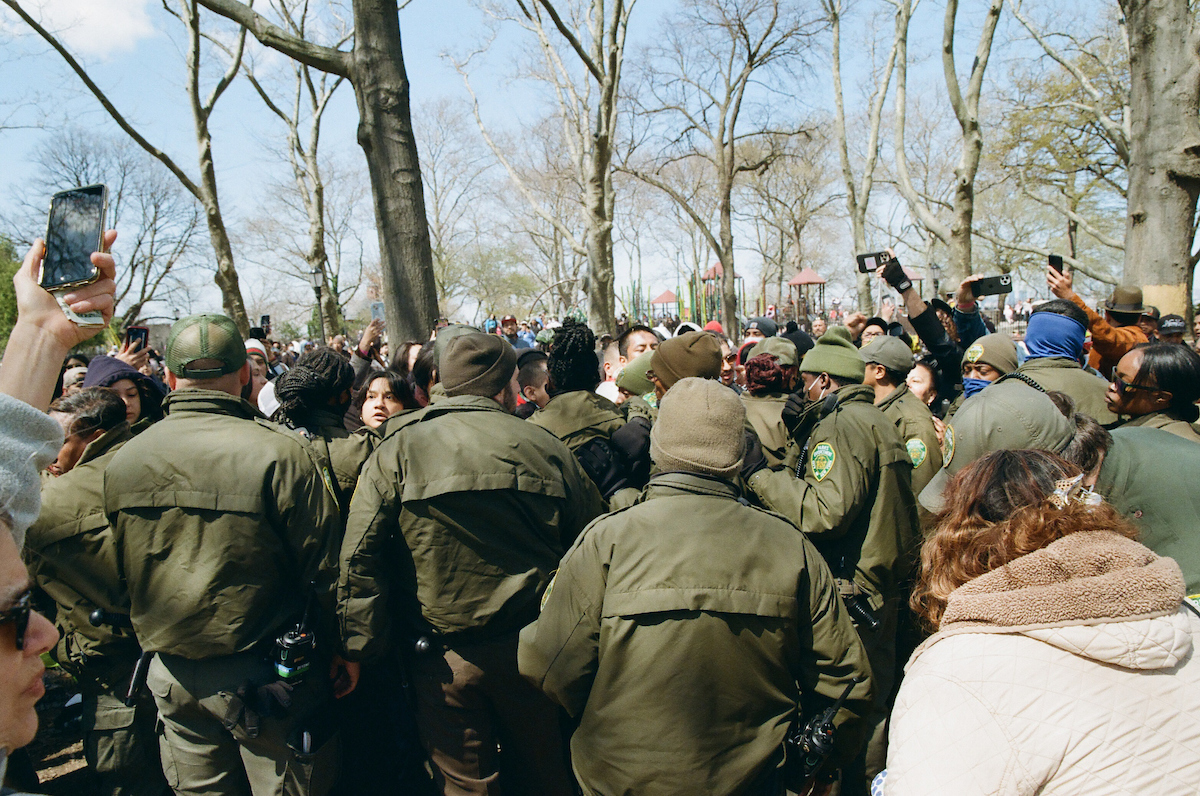

Photo by Clay Williams
You might also like 

















